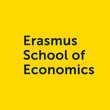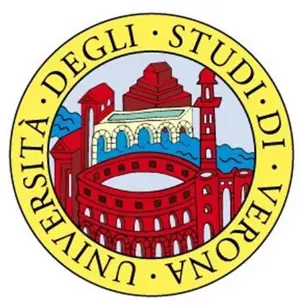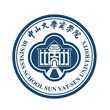-
- Postdoc Job, PhD Candidate Job
- Posted 19 hours ago
Postdoc in Macro-Financial Modelling of Biodiversity Risk
At Universiteit Utrecht in Utrecht, Netherlands
-
- PhD Candidate Job
- Posted 5 days ago
Environmental economics, applied econometrics, behavioral / experimental economics, information economics
At University of Neuchâtel in Neuchâtel, Switzerland
-
- Researcher / Analyst Job
- (Partially Remote)
- Posted 3 days ago
Associate Economist
At The Conference Board in Europe in Brussels, Belgium
-
- PhD Candidate Job
- Posted 1 week ago
PhD vacancies at Erasmus School of Economics (Erasmus University Rotterdam)
At Erasmus School of Economics, Erasmus University Rotterdam and Tinbergen Institute (TI) in Rotterdam, Netherlands
-
- Professor Job
- Posted 5 days ago
Lecturer in Cybersecurity
At Aston University in Birmingham, United Kingdom
-
- Assistant Professor / Lecturer Job
- Posted 5 days ago
Assistant professor in Statistics, Economic Statistics or Mathematical Finance and Economics - University of Verona
At Department of Economics, University of Verona in Verona, Italy
-
- Junior Industry Job, Mid-Level Industry Job, Administration Job
- Posted 1 week ago
Mehrere Mitarbeiter*innen für das Leitungsteam Bargeld
At Deutsche Bundesbank in Regensburg, Germany
-
- Professor Job
- Posted 1 week ago
Professor of Applied Microeconomics (tenure track or tenured)
At Department of Economics and Finance at Tallinn University of Technology in Tallinn, Estonia
-
- PhD Candidate Job
- Posted 6 days ago
5 PhD positions at the Vienna Graduate School of Economics (VGSE)
At Vienna Graduate School of Economics - VGSE in Vienna, Austria
-
- PhD Candidate Job
- Posted 6 days ago
PhD positions in Innovation Management
At University of Southern Denmark in Odense, Denmark
-
- Junior Industry Job, Researcher / Analyst Job
- Posted 6 days ago
Pre-Doctoral Research Fellow/Researcher
At Ellison Institute of Technology (EIT) in Oxford, United Kingdom
-
- PhD Candidate Job
- (Partially Remote)
- Posted 6 days ago
PhD Student in health economics (salary scale 13 TV-L, 75 %)
At Institute of Health Economics, Leibniz University Hannover in Hannover, Germany
-
- Senior Researcher / Group Leader Job, Researcher / Analyst Job
- Posted 1 week ago
Senior Analyst / Analyst - Economic and Monetary Analysis and Strategic Initiatives
At National Bank of Slovakia in Bratislava, Slovakia
-
- Postdoc Job
- Posted 1 week ago
Post doctoral Research Fellows
At Ellison Institute of Technology (EIT) in Oxford, United Kingdom
-
- Postdoc Job, Senior Researcher / Group Leader Job, Researcher / Analyst Job
- Posted 1 week ago
Researcher (f/m/d) at the area “Basic Income Support and the Labour Market” at the IAB in Nürnberg
At Institute for Employment Research (IAB) in Nürnberg, Germany
-
- Professor Job
- Posted 1 week ago
Assistant, Associate or Full Professor in Macroeconomics, Monetary & Financial Economics
At The American University in Cairo in Cairo, Egypt
-
- Assistant Professor / Lecturer Job
- (Remote)
- Posted 3 weeks ago
Examiner - GCE A Level - Economics A (2015 Specification)
At Pearson in Pretoria
-
- Research Assistant / Technician Job
- Posted 1 week ago
RESEARCH/ECONOMICS ASSISTANT POSITION AT THE ESF
At THE CONFERENCE BOARD IN EUROPE in Watermael-Boitsfort, Belgium
-
- Postdoc Job
- Posted 2 weeks ago
POST DOCTORAL POSITION IN ENTREPRENEURIAL FINANCE
At University of Milan in Milan, Italy
-
- Assistant Professor / Lecturer Job, Professor Job, Postdoc Job
- Posted 4 weeks ago
Tenure-track Faculty Positions Vacancy!
At Sun Yat-sen University in Shenzhen, China
-
- Other Job
- Posted 2 weeks ago
Data Scientist
At TMC Engineering in Spain
-
- Other Job
- (Partially Remote)
- Posted 2 weeks ago
Ökonom*in (w/m/d)
in Bonn, Germany
-
- PhD Candidate Job
- Posted 2 weeks ago
PhD Candidate Statistics and Data Science
At University of Basel in Basel, Switzerland
-
- Professor Job
- Posted 2 weeks ago
W2 Professor (m/f/d) of Business Administration, esp. Digital Marketing

-
- PhD Candidate Job
- (Partially Remote)
- Posted 1 day ago
Research Associate § 28 Subsection 1 HmbHG (2 positions)
At Universität Hamburg in Germany
Pagination













